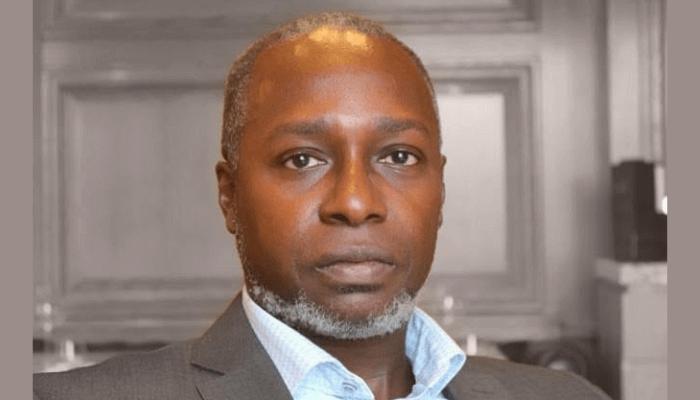Paragraph 1: The Imperative of Cultural Preservation in Nigeria
Nigeria, a nation of vibrant cultural diversity, faces the challenge of balancing modernization with the preservation of its rich heritage. Mr. Ed Keazor, Director of the Nsibidi Institute, a Lagos-based research and cultural organization, emphasizes the urgent need for Nigerians to actively safeguard their cultural values and traditions amidst the rapid influx of globalized influences. Keazor argues that cultural preservation is not merely an act of nostalgia but a critical component of national identity, fostering a deeper understanding and appreciation of Nigeria’s complex social history. The Nsibidi Institute, with its focus on indigenous knowledge systems, plays a vital role in this endeavor, striving to connect the nation’s historical past with its contemporary cultural expressions.
Paragraph 2: The Nsibidi Institute’s Festival of Nigerian Popular Culture
To champion this cause, the Nsibidi Institute is organizing a three-day festival in Lagos, aptly themed “The Past in the Present Around us: A retrospective celebration of Nigerian Popular Culture.” This event aims to create a platform for dialogue and reflection on Nigeria’s social narrative, tracing the evolution of its popular culture. The festival’s multi-faceted approach encompasses film screenings, photo and art exhibitions, performances, and interactive conversations, all designed to illuminate the dynamic interplay between historical and contemporary cultural forms. This initiative underscores the Institute’s commitment to showcasing the vibrant continuity of Nigerian social history and demonstrating the enduring influence of the past on the present.
Paragraph 3: Exploring the Nigerian Popular Press: A Symposium on Heritage and Social Culture
A key highlight of the festival is a symposium titled “The Nigerian Popular Press: A Driver of Heritage and Social Culture.” Moderated by Aduke Gomez, the symposium will bring together prominent figures like Jahman Anikulapo, C. Don Adinuba, Freda Olatunbosun, and Michael Effiong James to discuss the historical role of the press in shaping Nigerian culture and identity. The symposium will delve into the ways in which the popular press has both reflected and influenced social trends, preserved historical narratives, and contributed to the ongoing evolution of Nigerian cultural values. This forum promises to be a rich source of insight into the complex relationship between media, culture, and societal development.
Paragraph 4: Unveiling Historical Narratives Through Exhibitions and Film
The festival’s opening day will feature compelling exhibitions and film screenings that shed light on specific periods of Nigerian history. An exhibition focused on “first-century newspaper advertising (1863-1963)” will offer a glimpse into the evolution of commercial communication and its reflection of societal values during that era. Complementing this, a film screening based on “Lagos: the birth of a city style (1861-1967)” by Muni and Ed Keazor will explore the transformation of Lagos into a vibrant metropolis, tracing the development of its unique cultural identity. These visual and cinematic presentations will provide attendees with a tangible connection to Nigeria’s past, enriching their understanding of the nation’s historical trajectory.
Paragraph 5: Multi-pronged Efforts to Safeguard Nigeria’s Cultural Heritage
Beyond the Nsibidi Institute’s initiatives, various other efforts are underway to preserve Nigeria’s cultural heritage. Government initiatives include the establishment of cultural villages and increased funding for museums, aiming to create dedicated spaces for the celebration and preservation of cultural artifacts and traditions. Community-led cultural celebrations further contribute to this cause, reinforcing local identities and fostering a sense of shared heritage. The promotion of traditional arts and crafts by local artisans not only sustains these valuable skills but also provides economic opportunities within communities. Furthermore, there is a growing recognition of the need for professional training in museum management and conservation to equip future generations with the expertise required to safeguard Nigeria’s cultural treasures.
Paragraph 6: Addressing the Challenges of Cultural Preservation in a Changing World
Despite these positive developments, significant challenges persist. The illicit trafficking of cultural artifacts poses a serious threat, depriving Nigeria of its historical patrimony. Vandalism of historical sites and monuments further erodes the nation’s cultural landscape. Balancing the demands of modern development with the imperative of cultural continuity remains a complex task, requiring careful planning and community engagement. Addressing these challenges requires a concerted effort from government agencies, cultural institutions, and individuals alike, working together to ensure that Nigeria’s rich cultural heritage is preserved for future generations. This includes strengthening law enforcement to combat artifact trafficking, promoting awareness of the importance of cultural preservation, and integrating cultural considerations into development projects.














